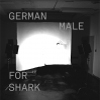 This album is a study in restraint. Opening with a libidinous blast, the duration is spent in an attempt to reign in on the passions released during the initial cacophony. These improvisations have been placed within a context of specific boundaries, allowing the musicians to explore particular modes of operation without being overwhelmed by the unlimited possibilities that sometimes stifle free form music.
This album is a study in restraint. Opening with a libidinous blast, the duration is spent in an attempt to reign in on the passions released during the initial cacophony. These improvisations have been placed within a context of specific boundaries, allowing the musicians to explore particular modes of operation without being overwhelmed by the unlimited possibilities that sometimes stifle free form music.
Male is a Chicago based ensemble revolving around Jonathan Krohn (electronics) and Benjamin Mjolsness (guitar). Fluttering about this dual core is a cadre of other fine instrumentalists including vibraphonist Jason Adasiewicz, Dave Rempis on sax, and cornet player Josh Berman, among others. On this, their sophomore album, more time has been taken adding to, or subtracting from the original improvised recordings, which were an attempt to capture the feel of the past few years live shows. The chosen process has resulted in a very listenable collection of tunes.
"M. Wilson, American" opens with virulent strains of atonal sax, a battery of drums, soft vibraphone, and grating guitar. All sound like they are wrestling each other, screaming, trying to bury each other alive. Somewhere along the way they learn to regard one another, gathering around a water cooler of pre-amp distortion and fuzzy drones to work things out. This song and the rest are essentially expressionistic; vast territories and blurred landscapes are painted in quick strokes of hazy reverb. Glorious washes of echo and delay meld together to give instrumental snippets that seem to have been reproduced verbatim from the bands dreams. Subjective moods swirl around like Midwest cyclones.
"The Tase (One)" is just under two minutes long and is a copasetic sketch of what can be done to coax out some refracted tones from the guitar. Gently picked, and nearly subdued, it is minimal and hypnotic. Late in the album a live version, "The Tase (Two)," gives a longer expanded take on the piece. In the live setting it takes more time to develop, but reveals further nuances and subtleties. The lush organic drone that accompanies it adds a nice rinse.
"Jungle Boys" takes to flirting with the wilder, noisy end of the contemporary audio spectrum again; even so, the song still gives off an aura of self-control. Drummer Steven Hess is the main attraction at this event. Building up with a pitter patter of random rain splashes across his kit, things gradually escalate into an abstract onslaught, accompanied by the ricocheting splatter effect achieved with old reverb units, and some unnerving oscillations. My personal favorite is "House of Ride": a short melancholy drone. I listen to it on repeat up to two or three times in a row, like my teenage daughters do with their favorite pop songs. This is the centerpiece of the album, the logical zero point and the calm at the center of the storm.
German for Shark is a vinyl (& digital) release that comes with four downloadable MP3 remixes, from the likes of Anthony Child, Jon Minor, and Jim Schoenecker. All are very enjoyable, most following the blueprint of the originals closely, while elaborating on the textural elements. Dan Bitney of Tortoise, however, moves the music in a refreshingly different direction with "Japanese for Yes," making it positively danceable. It's a deep bass dream that makes my head swim with visions of sub-tropical vistas, Jamaica’s neon nightlife.
By the way, hai or haifisch is German for shark.
samples:
 
Read More


